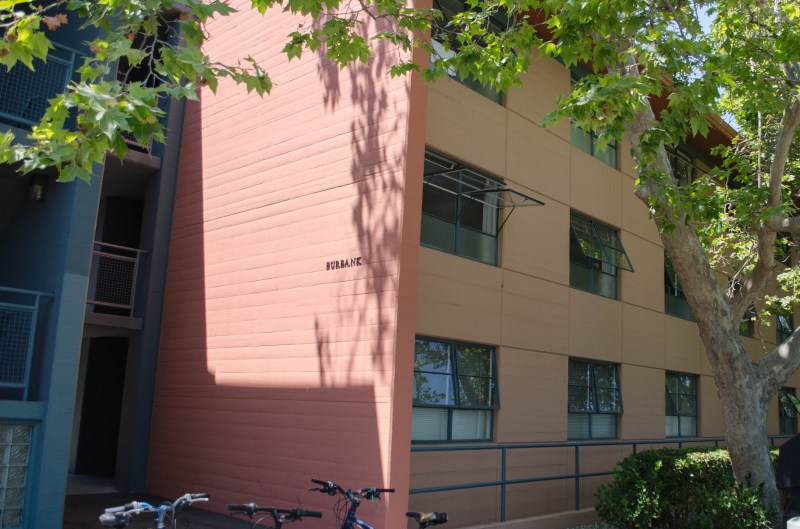At least 20 cases of a stomach bug have been reported in Burbank alone, according to staff members in the dorm. The outbreak, which has been ongoing for two weeks, has reportedly spread from Burbank to seven other dorms, infecting at least 25 students across campus according to Student Affairs spokesperson Pat Harris.
Though many students are calling the illness norovirus, Harris said that there have been no confirmed cases of norovirus among undergraduates, but the pattern of symptoms and contagion observed in the virus cluster is very consistent with what would be expected of norovirus.
According to the Centers for Disease Control (CDC) norovirus is extremely infectious and its symptoms include vomiting and diarrhea, which can lead to dehydration. Norovirus can be spread through direct contact with infected people, contact with contaminated food and surfaces according to the CDC. In addition, norovirus has quick turnaround and affected individuals usually stop displaying symptoms within 24 hours — although they can be contagious for up to two days afterwards without symptoms.
“Stay hydrated because with norovirus you can throw up a lot and that really dehydrates you and that leads to more illness,” Burbank Resident Assistant (RA) Tess Stewart ’21 advised. “But the people who get it, they’re walking around by the next day.”
While some form of sickness is common in frosh dorms in the fall — often dubbed the “freshman plague” — this year’s outbreak is different, according to Burbank RA Sofia Avila ’21.
“It’s a very historical thing because it doesn’t happen that often,” Avila said.
However, Harris wrote that “Over the course of any given year, it is typical to become aware of approximately a half-dozen or so clusters of gastrointestinal illness.”
In Burbank, lack of adequate response training might have also played a role in the outbreak, Stewart said.
“Another problem is that none of us are trained PHEs,” Stewart said. “We don’t even have a PHE in Burbank so none of us got the training on how to specifically deal with this that other dorms might have.”
According to Avila, the first reported incident occurred when a Burbank resident threw up on the bathroom floor, likely sparking the spread of the illness. The cause of that case is unknown.
Avila said she did not know whether the outbreak is still spreading, but she advises residents to still take safety precautions.
“Wash your hands, don’t touch your eyes, don’t eat food with your hands, avoid touching doorknobs and stay hydrated,” Avila said.
Burbank resident Gabby Hernandez ’23 recently came down with the illness.
“All of Wednesday I felt kind of crappy, but I wasn’t sure if I was sick because I’ve had a cold since before NSO,” Hernandez said. “I had finished my midterm, I was in house meeting and I immediately felt super super nauseous. So I decided to go to bed to see if I could sleep it off but I woke up at midnight feeling awful. I went to the bathroom and eventually I threw up.”
Burbank RAs have been reporting cases of the stomach bug through forms that go to Peer Health Educators (PHEs) and Stern housing, which has led to an increase in cleaning crews to help keep the spread of germs to a minimum. Harris told The Daily that the quarantine protocol implemented in Burbank and Norcliffe, which includes cleaning and rigorous self-reporting, helped to contain the contagion as they have contained similar outbreaks in the past.
“Stanford’s special cleaning protocol of affected residential facilities has proven remarkably successful in containing such illnesses.”
But Burbank residential staff said they had never seen an outbreak like this one.
“I’m not sure if [Vaden] understand[s] the full extent of what we’re going through,” Avila said.
Hernandez echoed a similar sentiment about the magnitude of the issue.
“I didn’t realize how extreme this was going to be,” Hernandez said. “When the first person threw up Saturday night I don’t think anyone expected this epidemic to spread through the dorm so quickly. I definitely didn’t take strong enough precautions in the beginning.”
A silver lining to the outbreak, at least in Burbank, is that dorm residents have begun to view the collective sickness as a bonding experience.
“That’s been the one pro of this whole thing, is that everyone has really come together and supported each other because of it,” Hernandez said. “Everyone is giving each other Gatorade, Pedialyte, crackers, bland stuff while your stomach is recovering, bringing each other food.”
“Even while I was throwing up in the bathroom at 2 a.m. there were people in there talking to me,” she added. “So I wasn’t completely alone. The community has definitely been strengthened by it.”
Contact Ujwal Srivastava at ujwal ‘at’ stanford.edu.
